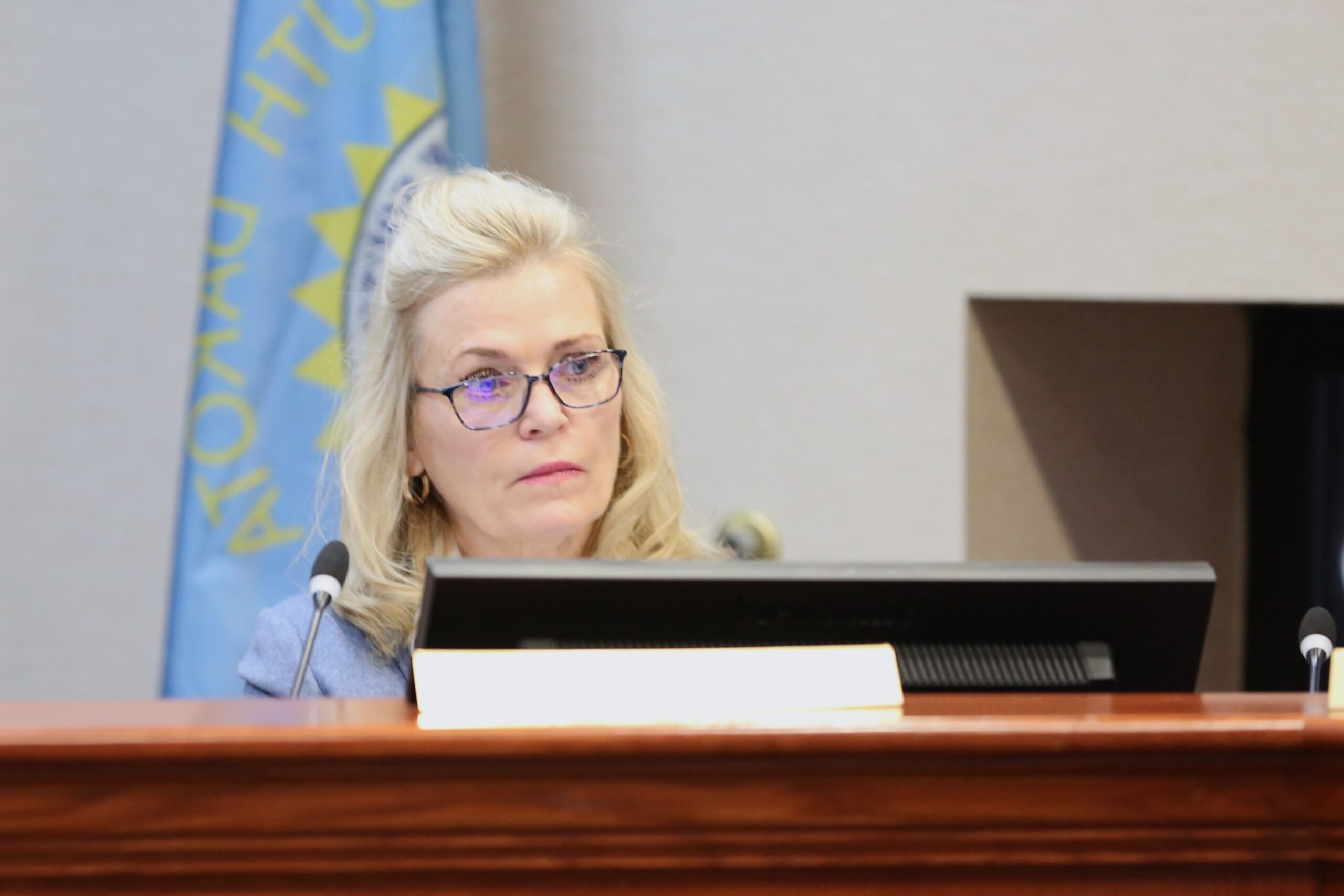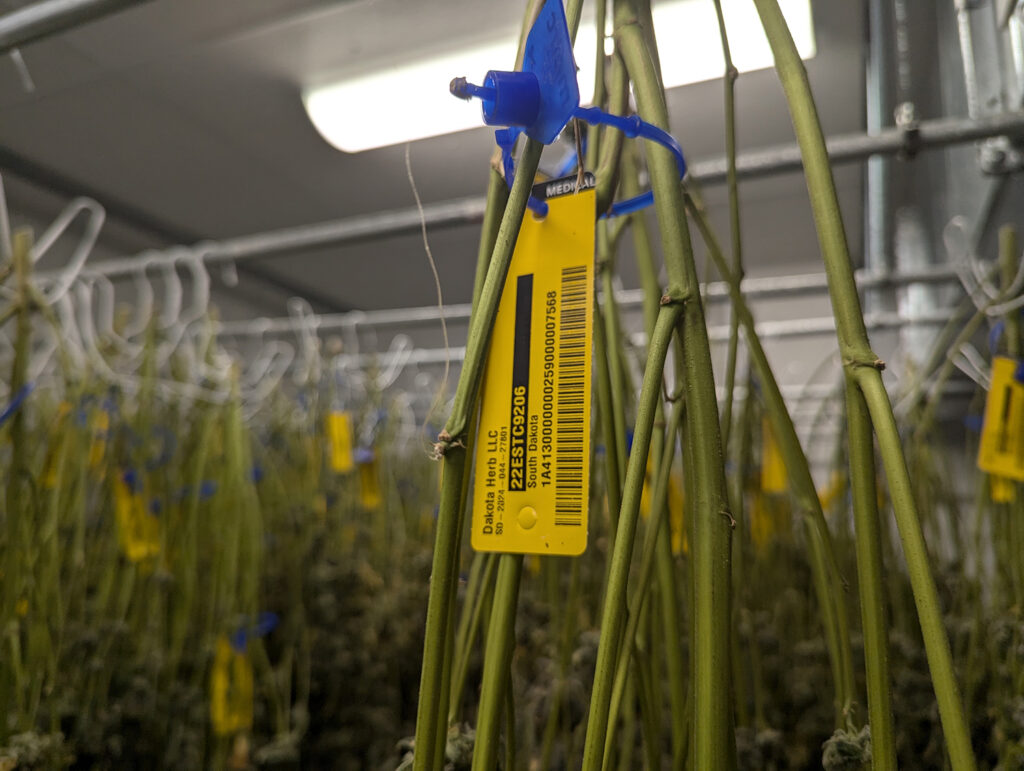Marijuana meant for South Dakota’s medical program is tagged as it dries at a Dakota Herb grow facility near Tea, South Dakota, in 2024. (Photo by John Hult/South Dakota Searchlight)
Representatives of South Dakota medical marijuana businesses said they were alarmed Wednesday after a state committee that oversees the industry spent much of an all-day meeting listening to invited speakers who warned about health risks and other dangers.
Emmett Reistroffer, of Genesis Farms in Sioux Falls, spoke during the public comment session at the end of the meeting.
“My phone has been blowing up with text messages,” he said. “There’s kind of a shock wave going through our community right now, with the speakers that were invited, most of whom were out-of-state.”
Reistroffer also said he fears the committee is involved in a coordinated effort to restrict or repeal the state’s medical marijuana program, which voters approved in 2020 and the state implemented in 2022. There are currently 16,477 patient cards issued in the state.
Reistroffer’s comments resulted in the chairwoman of the Medical Marijuana Oversight Committee, Rep. Josephine Garcia, R-Watertown, cutting him off.
“There has been no intention at all for any agenda this meeting, other than to follow what was not done when this program was first rolled out,” Garcia said. “That was my only intention here. If you’re insinuating that me, as the chair, have said something or orchestrated something, I have not done that. It is awareness for the public. This is a public safety issue.”

The panel of speakers included medical professionals and retired law enforcement officers from other states who shared concerns about over-prescription, youth access, mental health impacts, and a blurring between medical and recreational use.
Ed Moses, a retired law enforcement officer from Missouri, talked about various dangers of marijuana. He alleged medical marijuana is a “Trojan horse” for recreational marijuana.
“Marijuana can change who we are and our values,” he told the committee.
Karen Randall, an emergency medicine physician from Colorado, said she sees adults and children come into the emergency room due to marijuana-related incidents. She told a story about a child getting a highly potent marijuana candy product from the back of a dispensary without any identification, and ending up in the emergency room.
Randall said Colorado has become overloaded with various marijuana products, and it’s now the drug of choice for kids there.
“They’re not drinking, they’re not smoking like they used to — they’re using marijuana,” she said.
GET THE MORNING HEADLINES.
University of Oklahoma professor John Duncan, who works in the College of Medicine, advised the committee to treat medical marijuana like traditional medications, including prescribed dosing. He also said the committee should watch out for synthetic forms of marijuana that come with a host of other side effects.
Colorado addiction psychiatrist Libby Stuyt told the committee that medical marijuana is not the post-traumatic stress disorder solution that medical marijuana proponents allege. She said patients who are prescribed medical marijuana for mental health disorders often mistake the feeling of withdrawal for needing more medicine — blurring treatment and addiction.
Wednesday’s lineup also included Sioux Falls Superintendent James Nold. He said marijuana has become a problem in schools, with students accessing products through adults.
Jeremiah Murphy, who lobbies for the medical marijuana industry, told committee members during the public comment period that they should take pride in the state’s program.
“If you think about what you heard today, they hardly landed a punch on the South Dakota program,” he said. “They showed you real, significant problems in Oklahoma.”
Reistroffer said the medical marijuana industry is taking heat for local “smoke shops” selling illegal products, including those with hemp-derived but chemically modified ingredients. He said they are the ones selling high-dose “candy bars” and products that attract kids.
“We are not, yet we are getting painted with their brush,” he said.
The committee made no formal recommendations and took no votes during the meeting. The committee’s members are appointed by the Legislature’s Executive Board. The membership includes legislators and non-legislators, with state law requiring membership from the medical, counseling, law enforcement and patient communities.
YOU MAKE OUR WORK POSSIBLE.


